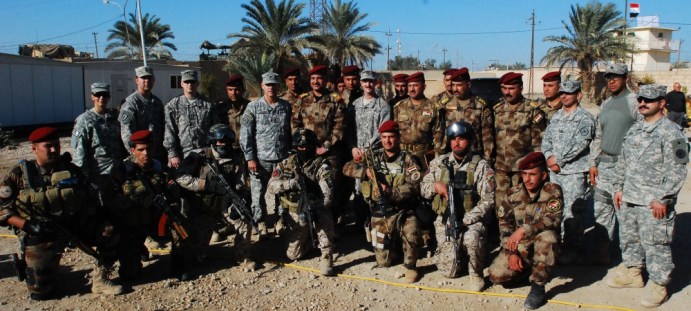Donald Rumsfeld, the only man to serve as secretary of defense two times in non-consecutive terms and whose reputation as a shaker and mover in Washington was undone by the long insurgencies in Iraq and Afghanistan, died Tuesday. He was 88.
Rumsfeld’s family said he “was surrounded by family in his beloved Taos, New Mexico.”
The narrative over his legacy differs wildly between conservatives and liberals with little middle ground, much like the political landscape today.
Donald Rumsfeld’s Career
Rumsfeld graduated from Princeton. He joined the Navy as a pilot through the ROTC program. He was elected in Congress two times representing Illinois. Later, Rumsfeld became President Nixon’s ambassador to NATO. President Ford made him his chief of staff before making him defense secretary in 1975. He tried to run for the presidency in 1988.
During his first tenure as defense secretary, he oversaw the Pentagon’s modernization. He was seen as a reformer who helped jump-start many of the weapon programs instrumental in forcing the collapse of the Soviet Union.
It was this reputation as a cost-cutting executive that led to President George W. Bush asking him out to run the Defense Department for a second time in 2001. Despite the fact that Rumsfeld held a high disdain for Bush’s father George H.W. Bush, whom he saw as an elitist member of the American aristocracy that looked down at people like Rumsfeld who had gotten his Naval commission from ROTC, he accepted.

Afghanistan and Iraq Shaped the Legacy of Rumsfeld
Rumsfeld was at his desk at the Pentagon during the 9/11 attacks. He didn’t leave the Pentagon during that fateful day and helped pull people from the rubble and fire after one of the hijacked planes hit the building.
He was one of the architects of the Afghanistan War and the lightning rod for the criticism that followed when the United States didn’t have a workable plan after defeating the Taliban and al-Qaeda. The U.S. responded with a huge influx of troops that remained as an occupying force while being tasked with nation-building. Only now, after nearly 20 years, is the U.S. withdrawing from the country.
Yet, the enduring legacy of Rumsfeld will always center around Iraq. He pushed President Bush to refocus from Afghanistan to Iraq in 2002 to oust Saddam Hussein. While there were no reliable intelligence reports that Iraq was involved in 9/11, it should be noted that the U.S. had been pushing for regime change in Iraq since the 1990s.
Many of the media like to blame Rumsfeld for asserting the existence of Weapons of Mass Destruction (WMDs). While he was far from blameless he in no way alone. President Clinton publicly stated the same thing, as did many of our NATO allies, then-Senator Joe Biden, as well as Colin Powell who spoke to the UN over the subject.
But as in Afghanistan, the U.S. didn’t have a long-term plan after the fall of Hussein. The smaller footprint, which the Pentagon opted for, set the stage for the bloody insurgency there that still continues today.
When in 2004 the stories broke about the Abu Gharib prison abuses by the guards, Rumsfeld, being at the very top of the food chain, was deemed ultimately responsible. He offered to resign. Yet, it wasn’t until late 2006 that President Bush forced him out when mid-term elections swung toward the Democrats.

Rumsfeld’s Obituaries Varied Widely
The AP wrote of Rumsfeld that he was, “a skilled bureaucrat and visionary of a modern U.S. military” whose reputation “was unraveled by the long and costly Iraq war.” It added that Rummy, as he was often called, was “ambitious, witty, energetic, engaging, and capable of great personal warmth.”
In an op-ed in Al-Jazeera, Rumsfeld was characterized as a “criminal in a suit and tie.” That was hardly the only, nor the worst, derogatory characterization of the day.
“For those too young to know, Donald Rumsfeld was an atrocious human being whose legacy is engineering unlawful, disastrous, and unnecessary wars that continue to traumatize generations. He had no remorse or contrition for his role in the bloodshed. May he kick rocks for eternity,” Daily Beast columnist Wajahat Ali wrote.
“Any obituary of Donald Rumsfeld that doesn’t specifically state that he shared responsibility for a misguided war that resulted in the deaths of 4,000 American GIs and 200,000 or more Iraqi civilians is journalistic malfeasance,” MSNBC analyst David Corn stated.
Former President Bush released a statement saying, “As Commander in Chief, I especially appreciated how Don took his job personally and always looked out for the interests of our servicemen and women. He was a faithful steward of our armed forces, and the United States of America is safer and better off for his service.”
Bush added that Rumsfeld was an “exemplary public servant and a very good man. [He] never paled before tough decisions, and never flinched from responsibility. He brought needed and timely reforms to the Department of Defense, along with a management style that stressed original thinking and accountability.”

























COMMENTS
There are on this article.
You must become a subscriber or login to view or post comments on this article.